LETTER FROM PENNSYLVANIA
A South African comes dead last at traditional coal cracker boilo competition
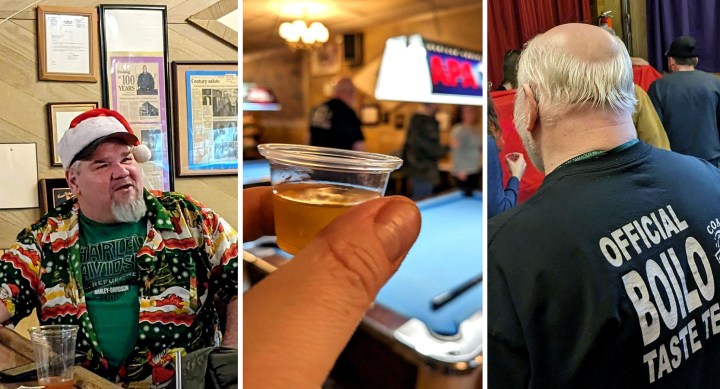
Through laughter, camaraderie, and unexpected flavours, Glen Retief discovers that tradition transcends borders when he joins a boilo competition and crafts his own South African-inspired version.
When President Jonathan Green arrived in 2017 to take up Susquehanna University’s presidency, one of the most memorable housewarming gifts he received was a bottle of boilo.
“It was delicious”, he told me. “And it came with a note, that if I was going to understand coal country, I had to know about boilo”.
Susquehanna University, where I teach creative writing, sits on the edge of a once-prominent anthracite-mining region. From the 1820s to the 1950s, successive waves of Eastern European immigrants came here to dig out one of the rarest and most carbon-dense coal varieties in the world.
Enter boilo, descendant of krupnikas, a Lithuanian, Christmas hot toddy made with honey and whisky. Linguists speculate that Welsh and English miners saw Poles and Lithuanians heating it up, and, unable to pronounce krupnikas, gave it its nickname.
In coal country today, parents still give scalding boilo to children, to clear their sinuses. At Christmas, families show up at each other’s houses with mason jars.
But you can’t buy boilo in any shop. You have to, as they say, know a guy. And I must have spent far too much time in faculty meetings rather than churches, bars, and diners, because the truth is that I’ve never met a maker of this famed yuletide elixir.
From a Facebook group, though, I learn about a boilo competition at the Tamaqua Elks Social Club, about an hour’s drive from my home.
“Thing is, I’m from South Africa”, I tell the Elks, over the phone. “I’ve never actually tasted boilo”.
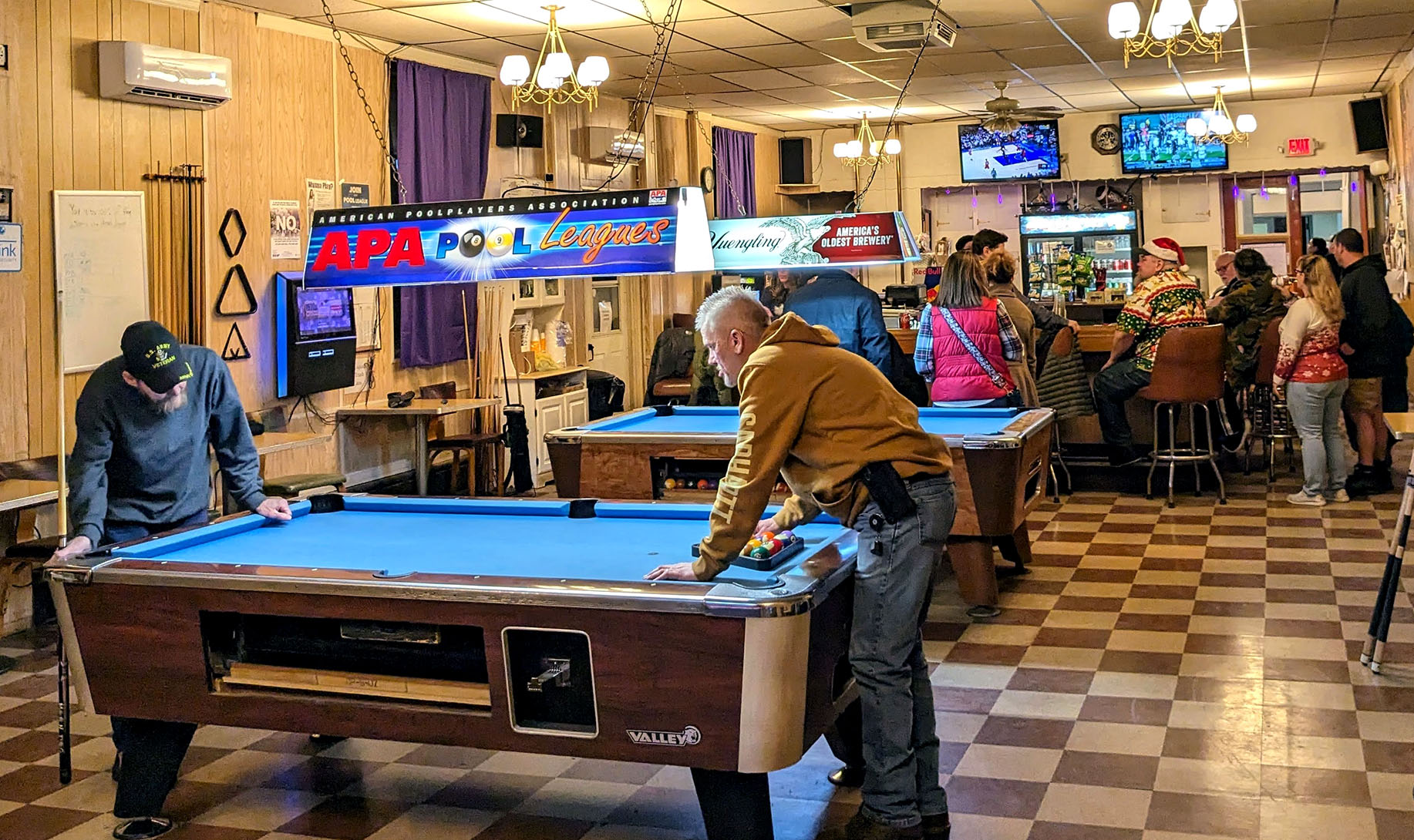
The social scene at the Tamaqua Elks, a private social club in Pennsylvania coal country. (Photo: Peterson Toscano)
No problem. To enter, all I need to do is show up at 7 pm on a Friday evening with thermos flasks and a $5 entry fee.
I look over boilo recipes. Whisky, honey, caraway seeds, and citrus—sounds delicious! But there are also some interesting contemporary twists, like butter or cranberry juice. Finally, to leverage my South African heritage, I add toasted cardamom seeds as a secret ingredient.
I enlist friends’ help. Now, as mentioned, my pals tend to be, like me, artsy, cosmopolitan, detribalised foodies.
But they are good sports, and more importantly, they seem, sincerely, to appreciate the drink I cook up, providing advice and suggestions: “More honey?” “Orange zest?”
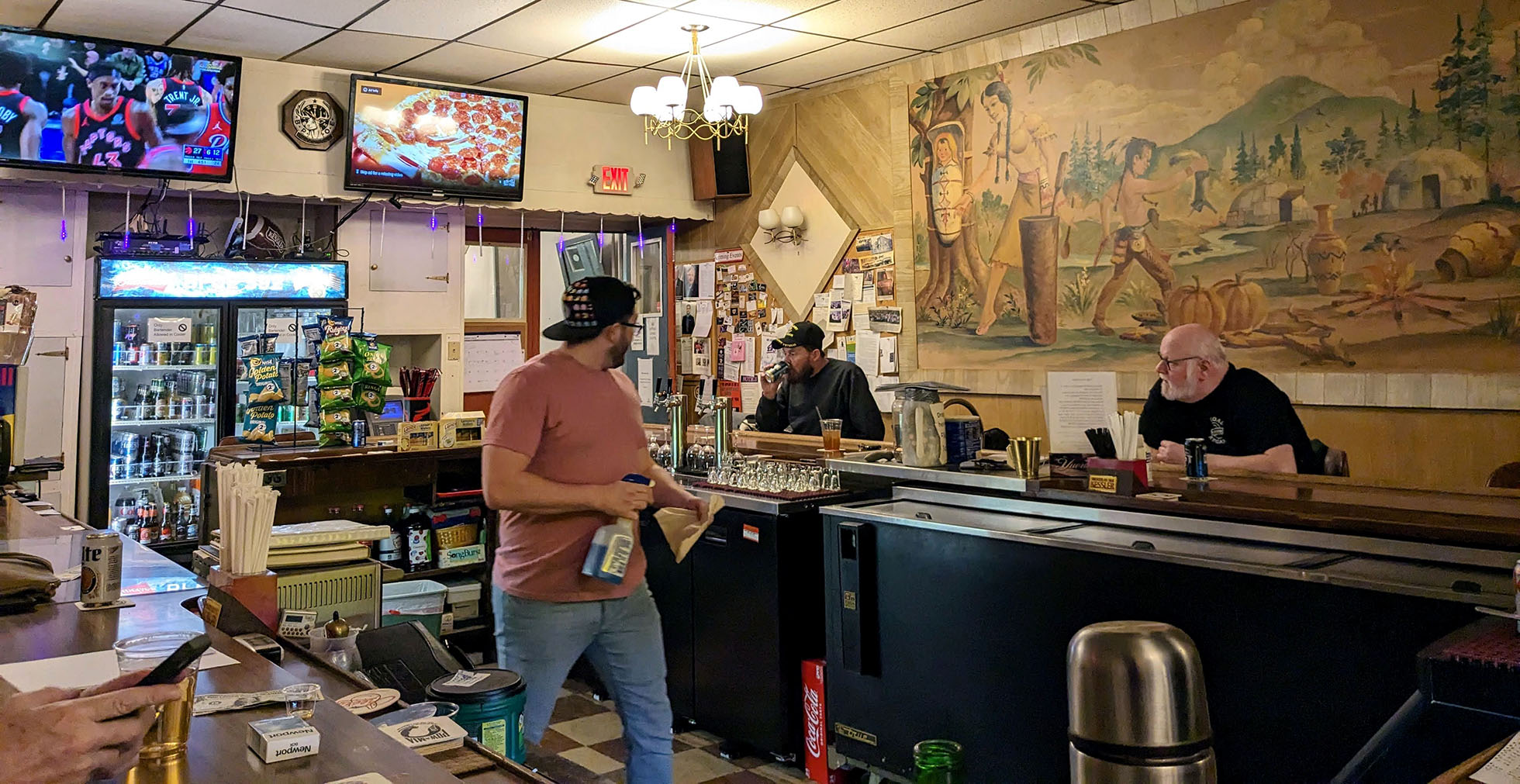
The bar at the Tamaqua Elks, a private social club in the heart of Pennsylvania coal country. (Photo: Peterson Toscano)
Here’s where I end up: I fill a slow cooker with honey, cranberry juice, and chopped and zested oranges. I add caraway seeds, toasted cardamom, ginger, allspice, and cinnamon sticks. I simmer this in the crock pot all day long. When cold, dark evening descends, I strain my mixture, add butter and whisky, and yebo! Boilo.
“Oh, that’s divine”, says my South African sister-in-law, Natasha, visiting us for Christmas. Later, when she comes down with solstice sniffles, I hand her more of the stuff. When we join friends at a snowy Christmas market, we drink it, steaming, from beaded South African tin mugs.
On the day of the competition, my crew pronounces my entry, which now fills four tall thermoses, a perfect balance of sweet and acerbic. Peterson, my husband, jokes that in this respect, it happens to mirror the personality of the cook.
The Tamaqua Elks is an archetypal, rural, working-class Pennsylvanian joint with antelope heads on the walls, a jukebox, pool tables, and women and men glued to a circular bar. Membership, which runs $40 or so a year, provides cheap food and alcohol and a place — because the space is technically a private club — to smoke indoors.
Peterson and Natasha join me at the bar. There, we quickly learn that there are only two contestants in tonight’s competition — yours truly, and Marlon, a bald, heftily-built, middle-aged man, dressed in a red Santa Claus cap and a bright green reindeer shirt.
Although he grew up with boilo, Marlon only started making it about 20 years ago.

Marlon, champion of the 2024 Boilo Contest at the Tamaqua Elks. (Photo: Peterson Toscano)
“I just got curious”, he tells me, smiling at the memory. “People talked about their secret ingredients and rituals, and I thought, let me try it out”. This Christmas he brewed 32 mason jars, about 60 litres, handing gifts to everyone he knows.
Tanker and Jen, a married couple, likewise grew up in coal country. Jen’s grandfather broke up coal pieces. Tanker’s family were farmers.
“Oh, we lived among coal crackers”, Tanker clarifies, using the local, affectionate slang. “But nobody drinks like those folks”.
Like Marlon, they both remember boilo from childhood.
“See that pool table over there?” Jen asks. “If you can see over the rim, you’re old enough for boilo”.
Like many rural working-class people, Tanker joined the army to get job training. In Iraq and Afghanistan, he drove a tank, and the nickname stuck. He generously lets me try some of his own boilo, chilled, in a skull-shaped glass bottle. He’s not entering it tonight, but as far as I’m concerned, it’s competition-worthy, with smooth, delicious notes of cinnamon and vanilla, and made from grain alcohol so potent you can only buy it on a military base.
It’s time for the competition. John, our host, asks everyone to line up. Everyone gets handed ballots except Marlon and me. There are three boilos in a category named “flavoured” and one in “traditional”. In fact my boilo is fairly orthodox, with its whisky, citrus, and caraway seeds. Nevertheless, because I also included cranberry juice, my entry is lumped in against both of Marlon’s “flavoured” entries.
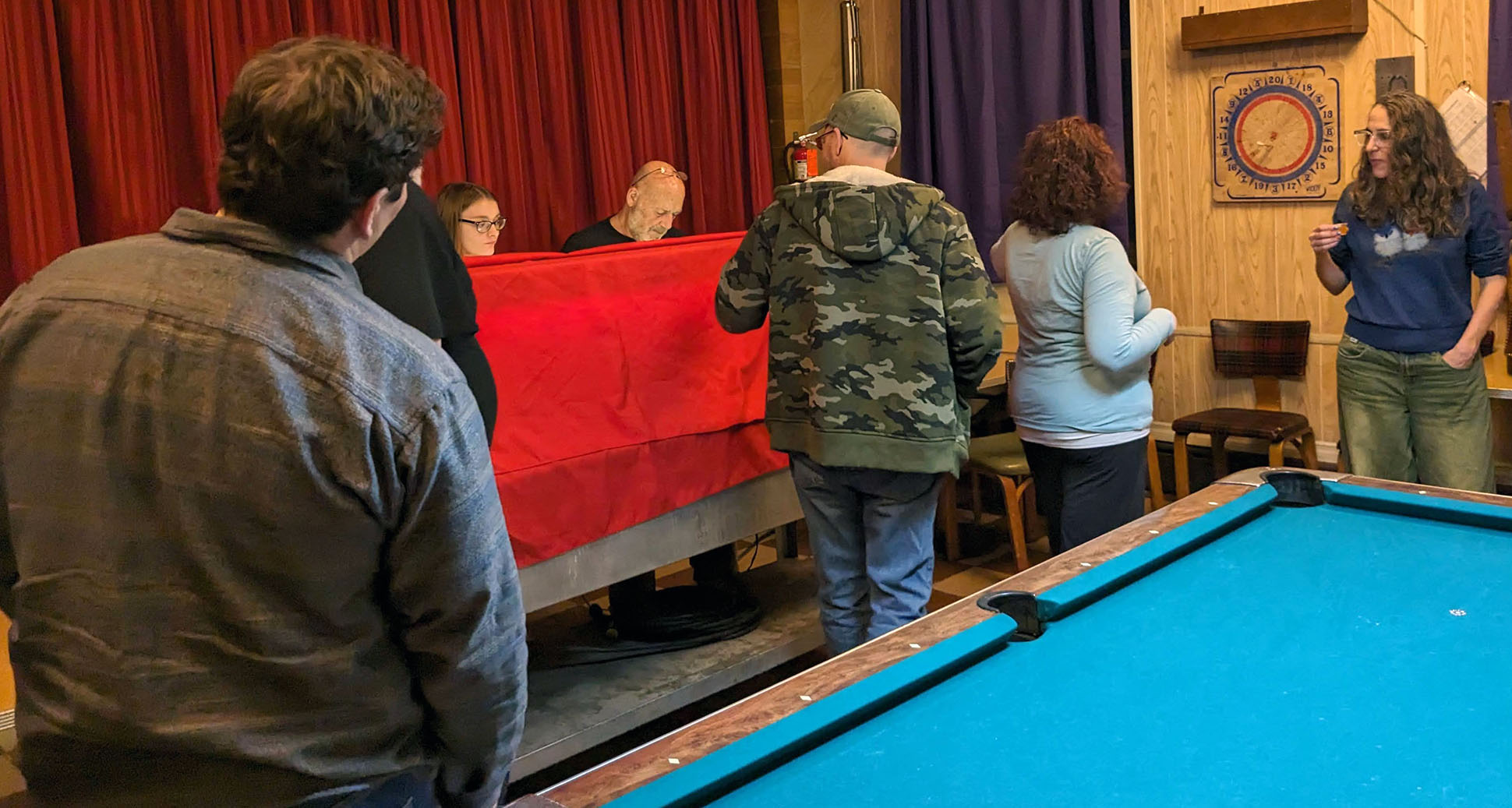
Patrons at the Tamaqua Elks, on boilo jury duty, line up to taste boilo competition entries. (Photo: Peterson Toscano)
Marlon’s traditional boilo, a smooth, pleasant brew, wins unopposed. But now, for the real contest, all thirty or so of us traipse past a pouring station where John and an assistant hand out small transparent cups.
One sip, and I know mine is Entry One. The cardamom is strong, making it slightly reminiscent of Bokaap tea. But the honey and whisky balance the spices in a way that pleases my South African palate, raised on sweet-spicy concoctions like bobotie.
Peterson and Natasha discreetly nod their approval, too. But this is a Pennsylvanian tradition, not a South African one. For the life of me, I can’t detect a reaction in the crowd. Some of the voters make solemn tasting notes on their ballots. Others drain the last drops from their thimble cups.
Marlon’s first flavoured boilo stuns me. It is at least twice as sweet as mine. It tastes like caramel liqueur, Bailey’s without the cream, or maybe Jerepigo without the brandy. Is this what flavoured boilo is supposed to be? Personally, I’d pour it over breakfast pancakes.
Again the thirty or so amateur judges keep their poker faces, and we step forward one by one for the last entrant, another chilled syrup, this one peach-flavoured and so sweet it makes my dental crowns ache. Seal some fruit in a mason jar with this stuff, and it will be good to eat long after Australia completes its current northward continental drift and collides with Eastern China.
My recipes have misled me. I was thinking of mampoer, or Irish coffee — opposing flavours, playing off each other. This is more like koeksisters than bieber.
And this time, there’s no mistaking the audience’s pleasure. They nod and laugh; a woman wearing a Steelers T-shirt asks for a second helping.
John announces the results from the bar.
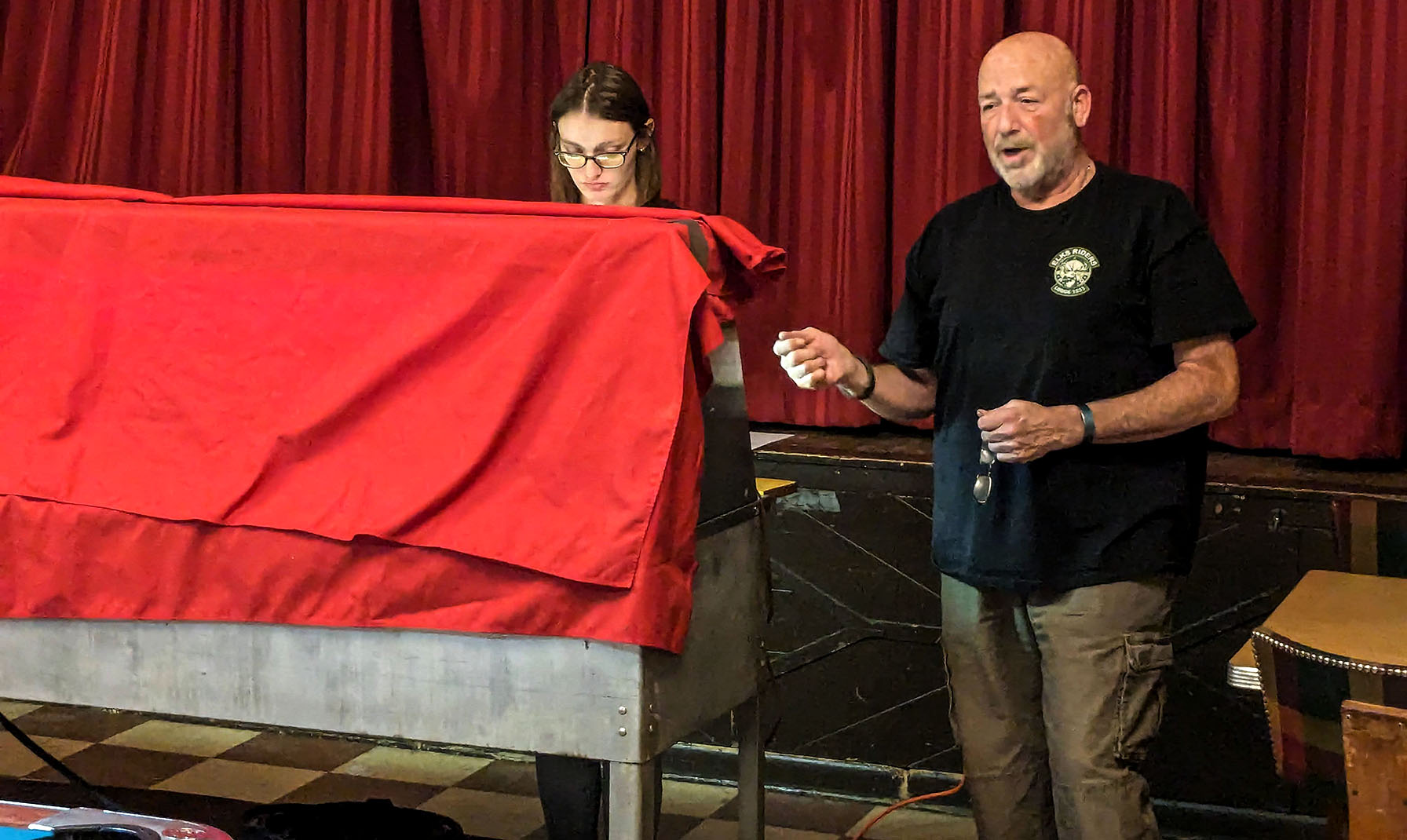
Rich and his assistant prepare boilo to pour into plastic thimble cups for the tasters. (Photo: Peterson Toscano)
“In third place, we have entry number one, by Glen, with three votes.” Cheers all round! Bronze for effort! Who, I wonder, would have been the lone Pennsylvanian to vote for my brew, along with Peterson and Natasha?
“Then entry two, with five votes”— Marlon’s caramel liqueur.
“And the winner is entry three, with 23 votes”. The enamel-dissolving syrup gets an appropriately loud roar, and Marlon steps up to accept his envelope of gift certificates to sponsoring stores.
Marlon graciously attributes my loss to faulty categorisation.
“That brew of yours tasted just like my grandpa’s”, he says. Which seems, um, sweet of him. But I’m not sure I believe it: even his traditional boilo tasted nothing like mine.
“Try a bigger competition”, insists Jen, kindly. “With so many sub-categories, you’re bound to find the right one”. Or, I figure, have access to a wide selection of homebrew to help take the edge off defeat.
It’s time to head home. As we leave, John thanks me for my interest in regional culture as well as for being a good enough sport to enter a competition for which I had no background.
Back home, near the university, the three of us drink a last nightcap of cardamom-caraway boilo. We toast to the mysteries of the evening. Did I look at the wrong recipes? Or subconsciously distort them? Was it just the particular crowd at the Elks? We drink one more round, and then end on a toast to South African cuisine, the delicate mix of heat, salt, and sweetness in a Cape Malay curry, the buttery apricot aroma of a fresh-baked malva pudding. Thank God, we note, for blends and hybrids, for the mixing of Africa, Asia, and Europe which created our unique gastronomic heritage. DM
Glen Retief’s The Jack Bank: A Memoir of a South African Childhood, won a Lambda Literary Award. He teaches creative nonfiction at Susquehanna University and recently spent a year in South Africa as Fulbright Scholar.






 Become an Insider
Become an Insider
Lovely piece – heartwarming, just like I imagine your boilo to be 🙂